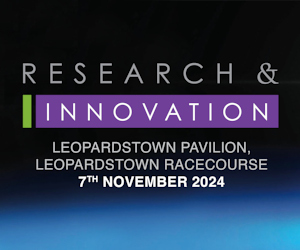Enable Conservation Tillage (ECT) Project Commences

Teagasc has launched a European Innovation Partnership project titled Enable Conservation Tillage, (ECT) which aims to promote the “Wider adoption of sustainable conservation tillage systems” by specifically looking at grass weed control in these systems. This 5 year project is a new way of problem solving on farms by co-designing solutions with farmers to help the adoption of conservation agriculture* systems on tillage farms.
At the recent launch, the project Operational Group, comprised of farmer groups (Claydon Group, BASE Ireland) along with industry, seed assemblers, researchers, specialist, advisors, and UK collaborators discussed the challenges facing Irish farmers using conservation agriculture systems.
The most significant challenge facing the adoption of conservation agriculture systems is grass weed control. Michael Hennessy, Head of Crops Knowledge Transfer in Teagasc and Project Leader said: “This project is extremely important for Ireland to help halt, or reverse the spread of highly damaging grass weeds such as blackgrass and other herbicide resistant grass weeds.” He added: “At the core of this project is a network of ten Focus Farms spread across the main tillage area, from Louth to Cork, which will enable local farmers to see first-hand how grass weed control can be achieved in different crop establishment systems.”
One of the first steps in controlling any weed, regardless of the control practices being utilised, is accurate identification. “The importance of identifying these weeds and understanding their biology, i.e. how and when these weeds germinate and grow, cannot be over-stated,” said Jimmy Staples, ECT Project advisor. He continued: “Tillage farmers, whether winter or spring cropping, should regularly inspect fields to spot and identify weeds which are not being controlled in the lead up to harvest 2019. It is only then the farmer can prepare and carry out appropriate actions to combat the problem post-harvest.” The project will place a large emphasis on Integrated Pest Management (IPM) utilising all cultural control measures possible.
Project Consultant Dr Sarah Cook, from ADAS in the UK, works closely with UK farmers to overcome difficult grass weed problems in various crop establishment systems. Dr. Cook said: “The weeds you have on your farm are a result of how you farmed in the past and are your responsibility.” She went on to say: “Regardless of the crop establishment system used on farm, weeds will adapt and flourish to that system, if not managed correctly. Every farmer must proactively adapt their management practice over time to control these weeds, and if not, these weeds will become an issue on the farm.”
There will be a range of activities and events associated with the Project starting with the Teagasc Spring Seminars across the country in January. You can also follow the project on social media “#ECTproject”. https://ec.europa.eu/eip/agriculture/en/find-connect/projects/enable-conservation-tillage-ect-wider-adoption
* The FAO (UN Food and Agriculture Organisation) define Conservation Agriculture as “a concept for resource-saving agricultural crop production that strives to achieve acceptable profits together with high and sustained production levels while concurrently conserving the environment.”
CAPTION:
A new European Innovation Partnership project called ‘Enable Conservation Tillage (ECT)’ was launched at the Teagasc crops research centre in Oak Park, Carlow. Picture with the project participants were: Michael Hennessy, Head of Crops Knowledge Transfer in Teagasc and Project Leader; Jimmy Staples, ECT Project advisor; and Project Consultant Dr Sarah Cook, from ADAS in the UK.







